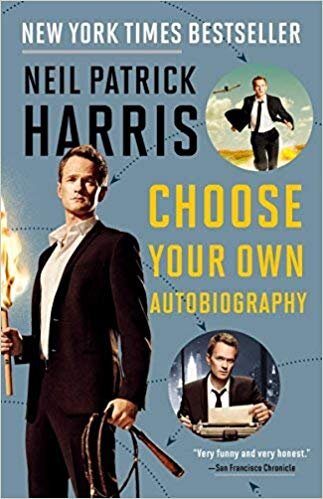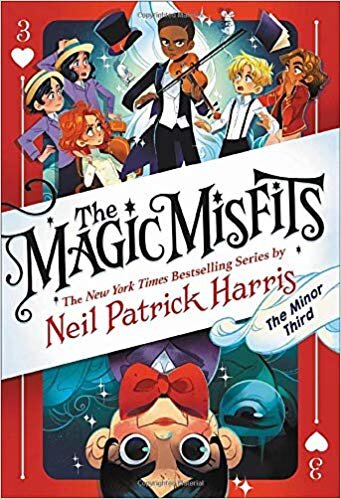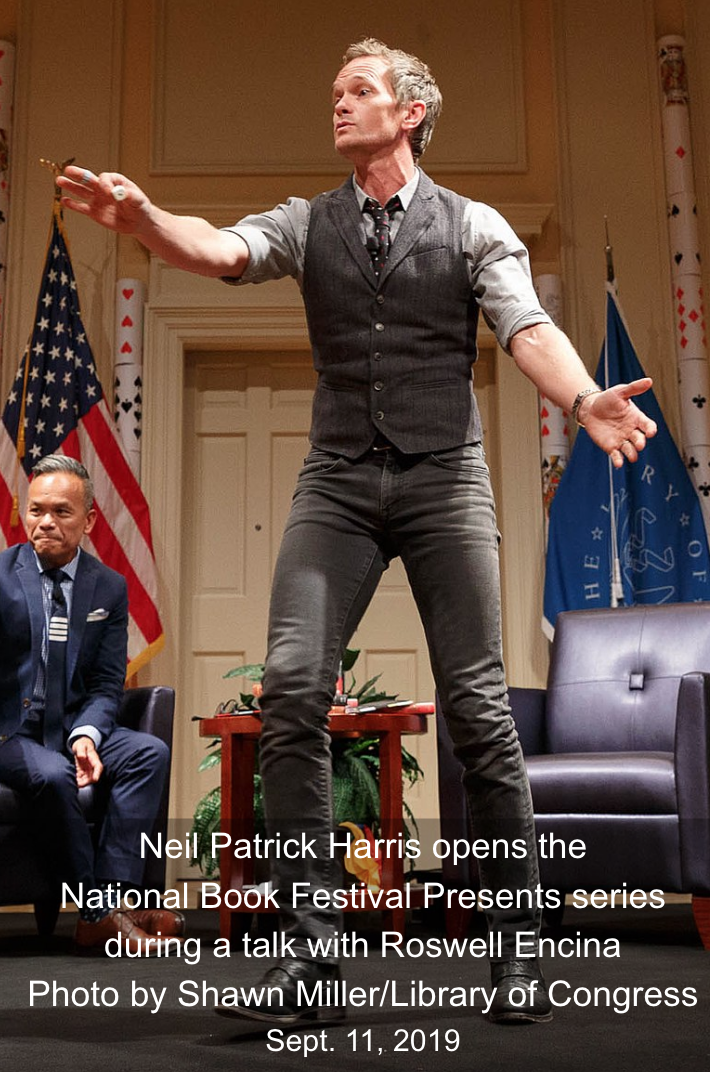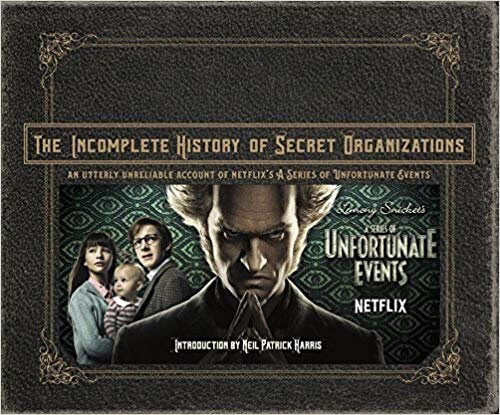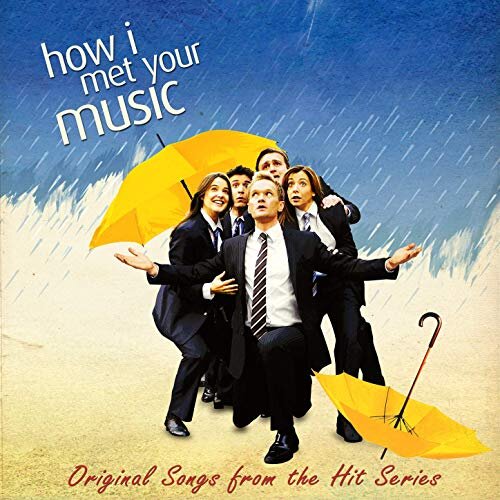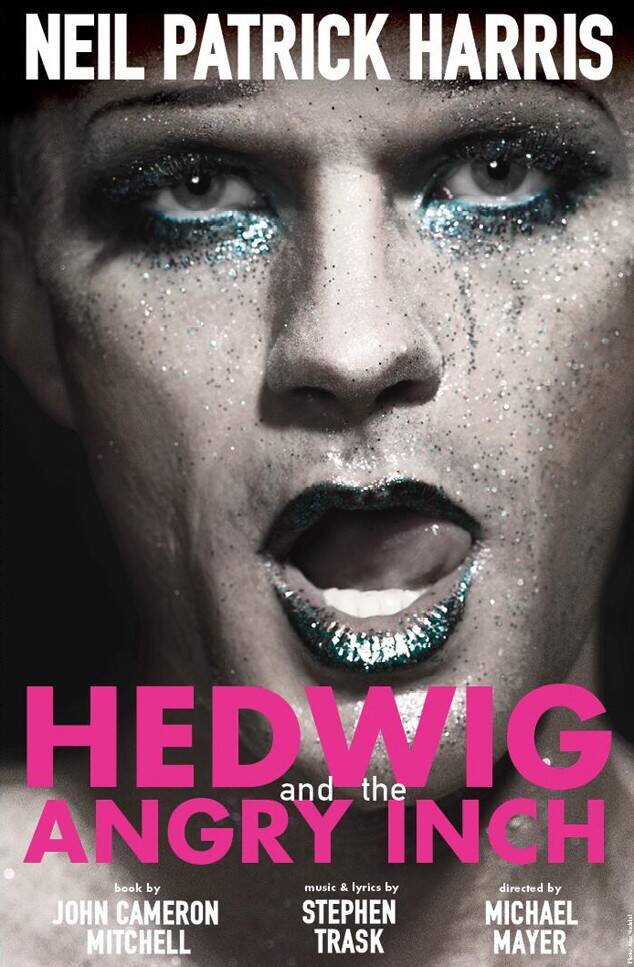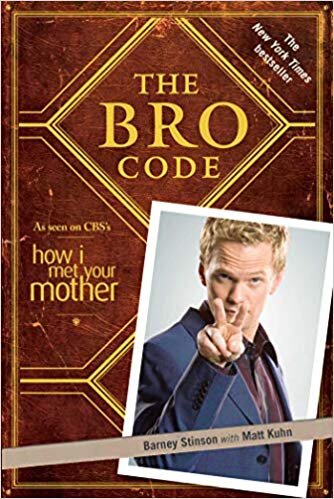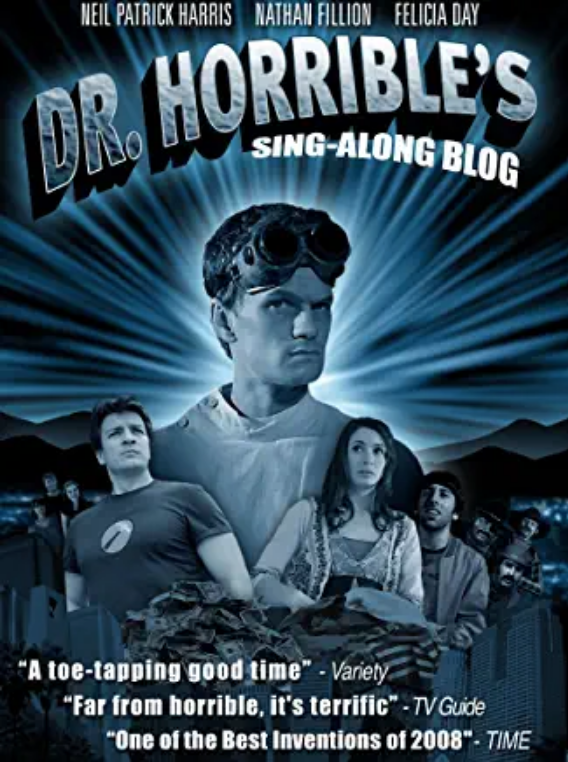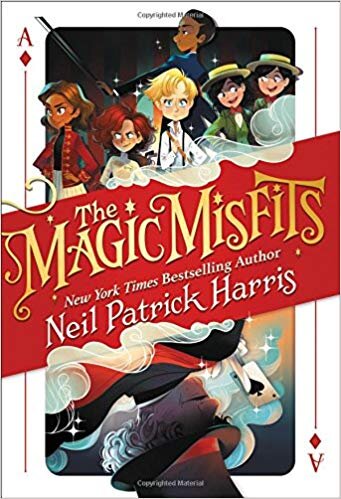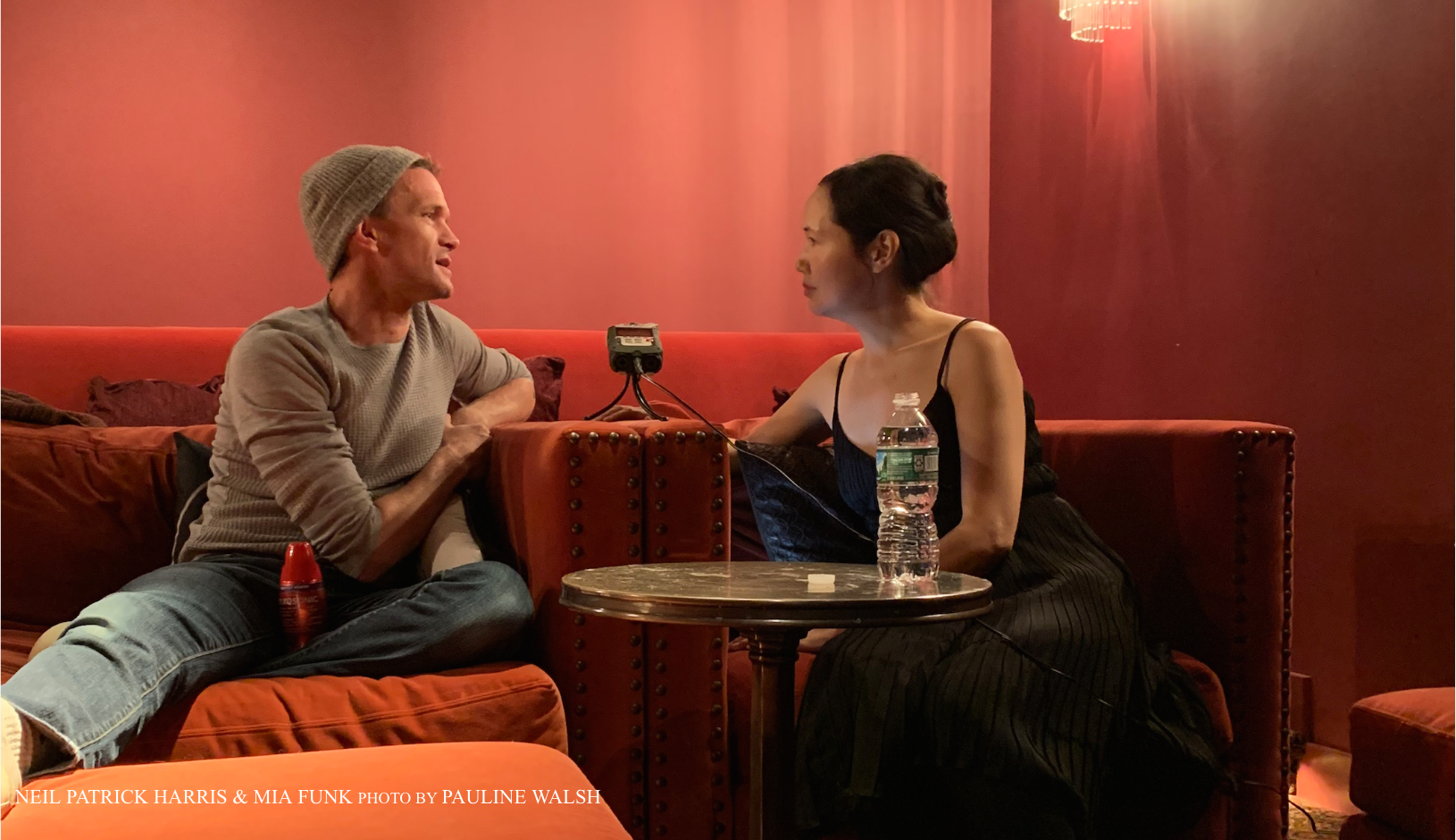Neil Patrick Harris is a Tony and Emmy award-winning stage and screen performer, famous for his roles as Barney Stinson in the popular CBS sitcom How I Met Your Mother, and as the iconic and beloved Doogie Howser, M.D., and Count Olaf in A Series of Unfortunate Events. He’s hosted the Oscars, Tony, and Emmy Awards, and performed in several Broadway shows, including Rent, Cabaret, Proof, and Hedwig and the Angry Inch. His film credits include Starship Troopers , the Harold and Kumar series, and Gone Girl.
THE CREATIVE PROCESS
So as I listen to you speak with admiration about directors and other artists who initiate their creative projects, does that mean you are beginning any new writing projects?
NEIL PATRICK HARRIS
I'm three books into a four-book series called The Magic Misfits, which is interesting because that's more for a younger demographic like for 8 to 12.
THE CREATIVE PROCESS
I meant writing for stage, but of course, you are a writer, and you've done your memoir. I want to talk about that, too.
HARRIS
I did a memoir as well. Yeah, that's a weird interesting...
THE CREATIVE PROCESS
That's an unusual memoir as well, I have to say.
HARRIS
The structure was unique. I wrote it as a Choose Your Own Adventure, but in many ways, I found writing, I find writing for a younger demographic almost more challenging, even though the vocabulary might be simpler, the ideas deserve and are allowed to be cleaner. You're also writing for people who haven't read a lot.
THE CREATIVE PROCESS
Yes.
HARRIS
So potentially impacting them in a way that can have a lasting effect, in a way that I don't think writing the same kind of fiction for adults might have.
* * *
I became very intrigued with what else can I do? And I don't say that out of some sort of disrespect or unhappiness in what I was doing. I just thought, OK, well, I've done this for four years. It's great. What else? Theater? Theater would be great!
There's no cameras. I can move my whole body. I don't have to stand in one place. So, I did theater for a while.
Well, that's great. What about movies? It would be so cool to be in a movie. You're in a location somewhere in the middle of the world. You can really spend a lot of time on one scene, and then you never have to do it again. How exciting would that be!? But I also like kind of...it turns me on to confront fears or challenges and to expand my skill set.
THE CREATIVE PROCESS
Right.
HARRIS
I don't know. I look at people who are a generation older than myself, even two generations older, and I'm so inspired by those that are still learning or at least have the mindset of not thinking they've learned it all.
You know what I mean? Even in painters or contemporary artists, when I see someone doing just the same painting that made them successful over and over their whole career, I'm impressed by it, but it makes me just kind of question them about is that all? Have they settled? Do they realize that they've gotten lauded for this singular type of painting? And so, therefore, they're going to continue to do that? That's what they're going to be...that's going to be their stamp? Or are they afraid to try something totally new because they don't want to be known for too many varied things?
* * *
Well, it was right around that time, right around sort of Gone Girl, maybe the end of How I Met Your Mother, which is a TV show that I did, where I felt empowered to make big acting choices. And with that freedom came more opportunities to do bigger acting choices.
I'm pausing for a second because I'm trying to think if that's unique to the actor. And it probably is, because if you try too hard as an actor in a scene, and you're trying too hard, it feels like you're overacting, and then you get hired less. Or they say, "OK, I see what you're doing. Just do it regular–normal." But I've gotten to do jobs that are far from normal, right? Barney Stinson was this character on How I Met Your Mother, and he was very big. Granted, it was a multi-camera sitcom with a laugh track. And so it was supposed to be kind of heightened, but the character that I was playing had his own vocabulary. He always wore suits. He was the life of the party. He was always drinking scotch and just full of adventure. And so the writers would write scenarios and punchlines assuming that I would take it and do something elevated in some way. I mean, they were already funny jokes to begin with, but then I would take these softballs and try to whack 'em out of the park as often as I could. So I got to do that for a long time. But again, then I feel like I'm doing TV and not film, so all of a sudden, David Fincher says, "Hey, you want to...I have this interesting idea for you to be in Gone Girl?" Totally different skill set because...
THE CREATIVE PROCESS
Where he saw that from that, you know?
HARRIS
I wonder, right!? I think for him it was finding an actor that came with baggage. And then going against that baggage. So I think people that see me or saw me at that time, from what he said, I was very likable, and that you've sort of trusted me. So, then he wanted me to be someone who you, in your gut, wanted to trust, but in the story felt compelled to suspect. So that sort of amped up the creepiness. And for me, the opportunity to do something super subtle and super realistic and supernormal in a sort of messed up world story idea was juicy. I was very excited to be a part of it and very nervous, but it was very technical. So weirdly, the television work that I had done...
THE CREATIVE PROCESS
He does a lot of takes.
HARRIS
Ton of takes. I had a big sex scene, and we had to rehearse and rehearse for hours before–weeks before we even got onto set so that every single take was usable footage because if we were flopping around on a bed, and we wind up in the middle of the bed, but on another take, we were over a little bit to the left, he has to choose. He can't use some of each, right? So he wanted to make sure that not only was it full of passion and full of spontaneity, but that it was exactly the same every time.
THE CREATIVE PROCESS
I would like to ask you about not influences, but works that made you want to become an actor or that you saw like, Wow, this would be so great to be involved in this...
HARRIS
I can think of two. They're both live things. When I first started acting and came to Los Angeles for a one week job or something. I was with my dad, and we went to see a production of a play called Fences.
THE CREATIVE PROCESS
Oh, August Wilson.
HARRIS
And James Earl Jones was the star of it. And I remember I was just the whitest kid ever from small-town New Mexico in this big city of Los Angeles, which isn't super diverse. At least, it didn't feel that way. And then I'm sitting there watching this play about a lower middle-class African-American man in [Pittsburgh] and his family. And I just remember being so moved, moved to tears at 13, 14 years old. A lot about a world that I really knew nothing about. Not even from school, really. I mean, a few pages as you skip through things, but certainly not this feeling empathy for this specific man. And Lynn Thigpenn was the wife and she was peeling potatoes on a rocking chair and monologuing ire at his character. And it was so moving. And I did think even back then, I recognized the impact that the theater can have on someone that isn't even anything like what they're like, right? You don't have to see them, don't have to be Asian to see Crazy Rich Asians.
THE CREATIVE PROCESS
What is your advice to young people?
HARRIS
Days are filled with things that happen. And you have to sort of determine whether you're going to make choices for things to happen or just react to things that are happening around you. And why not choose to go do things. You're not going to see art unless you go to the museum.
* * *
But I think you experience a theater piece differently if you've made a night of it. If you've gotten dressed up and you're respecting it by going, I don't think you have to be in a proper suit and tie or a fancy dress or something. But if you're watching your uncle at a potluck lunch doing a magic trick, you're not as invested as if you've gotten dressed up and are now going to The Magic Castle you've paid your entrance fee and you're sitting in a chair.
THE CREATIVE PROCESS
Your attention is different. Your posture is different.
HARRIS
A hundred percent. So that would be my advice to the youngsters.
This interview was conducted by Mia Funk with the participation of Pauline Walsh and collaborating universities and students. Associate Interviews Producers on this podcast were Max Johnson and George Metz. Digital Media Coordinator is Yu Young Lee. “Winter Time” was composed by Nikolas Anadolis and performed by the Athenian Trio.
Mia Funk is an artist, interviewer and founder of The Creative Process.




